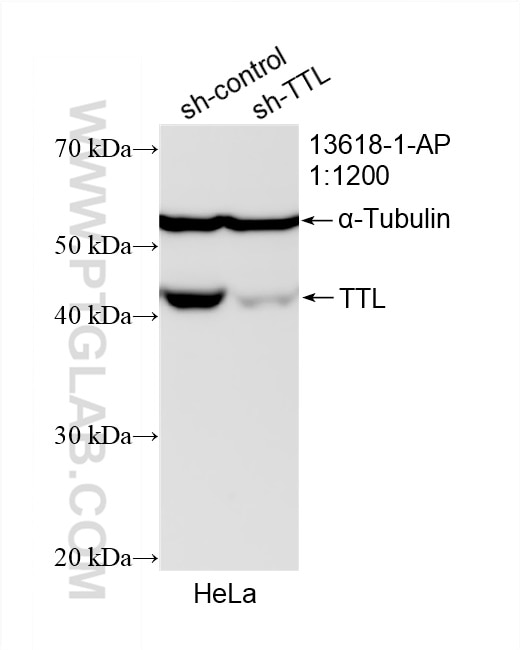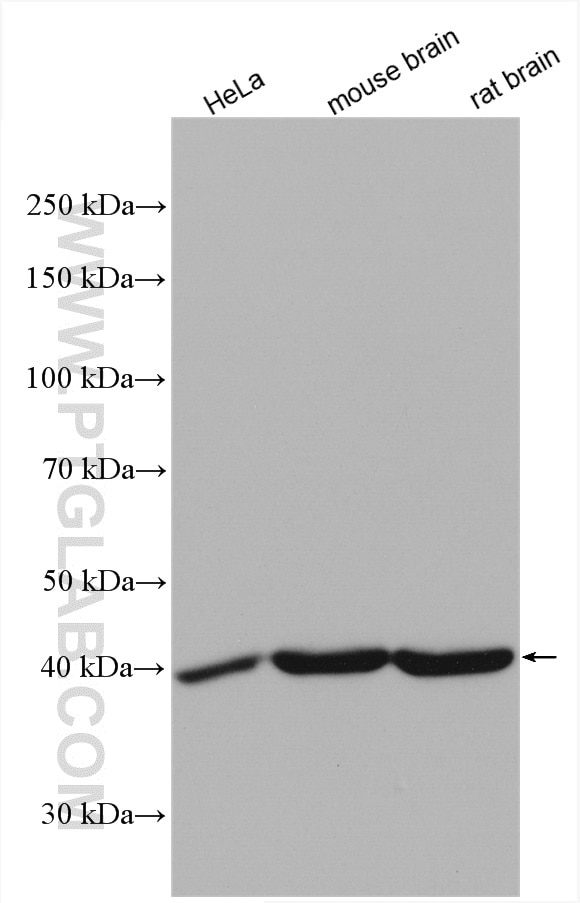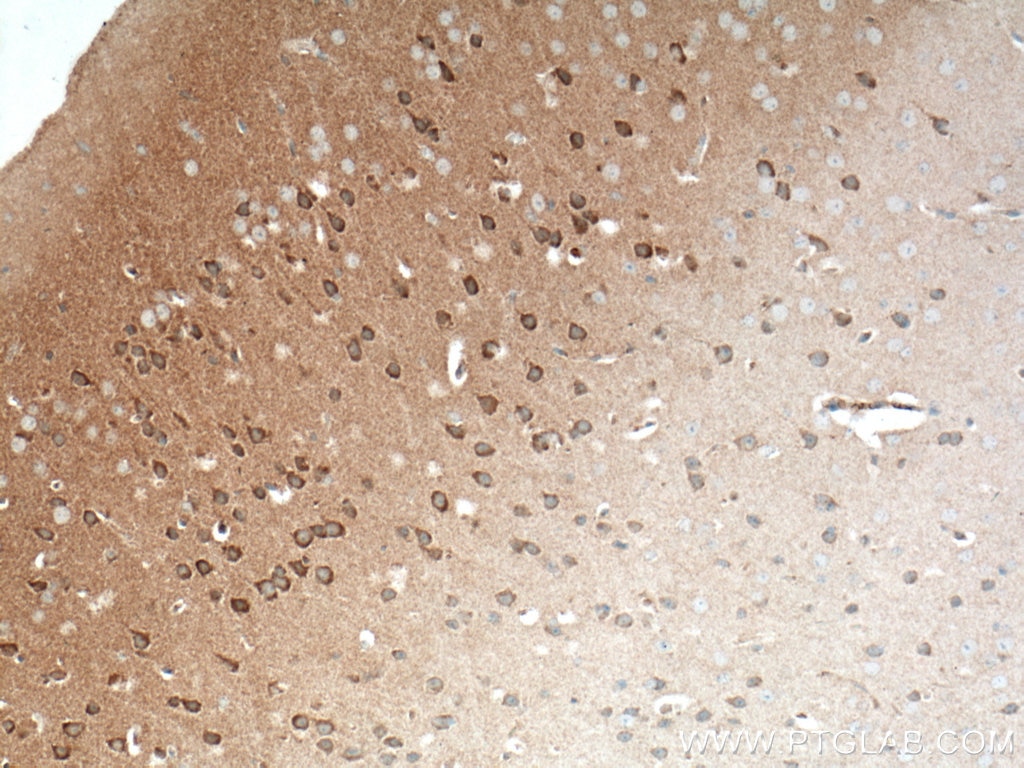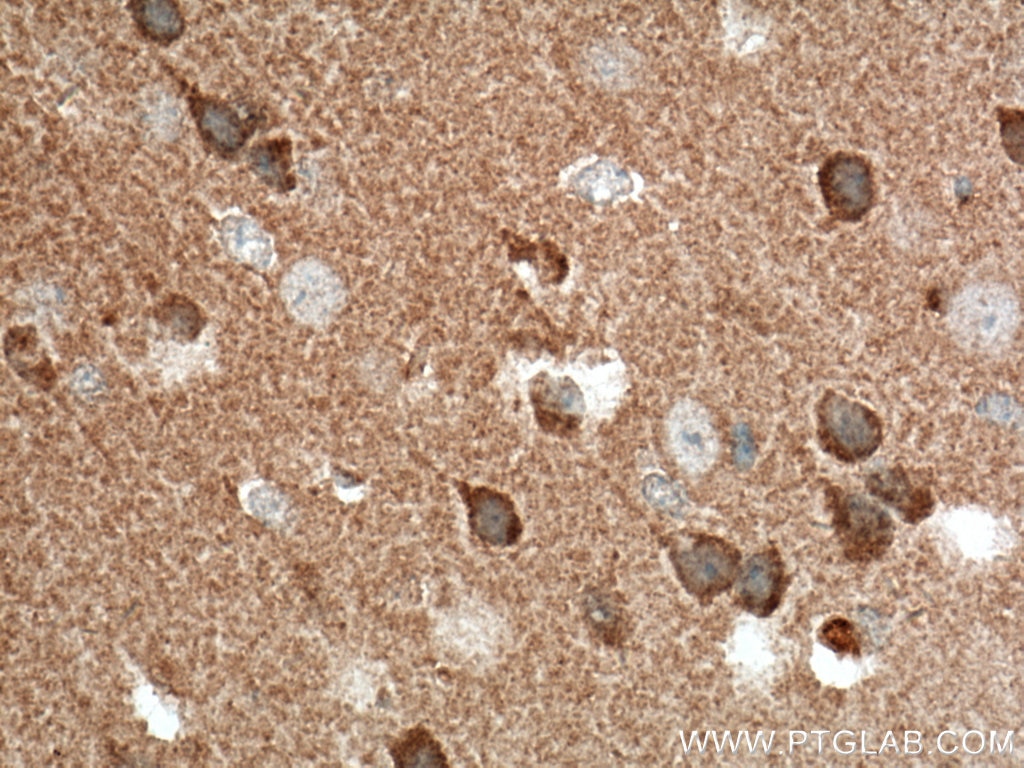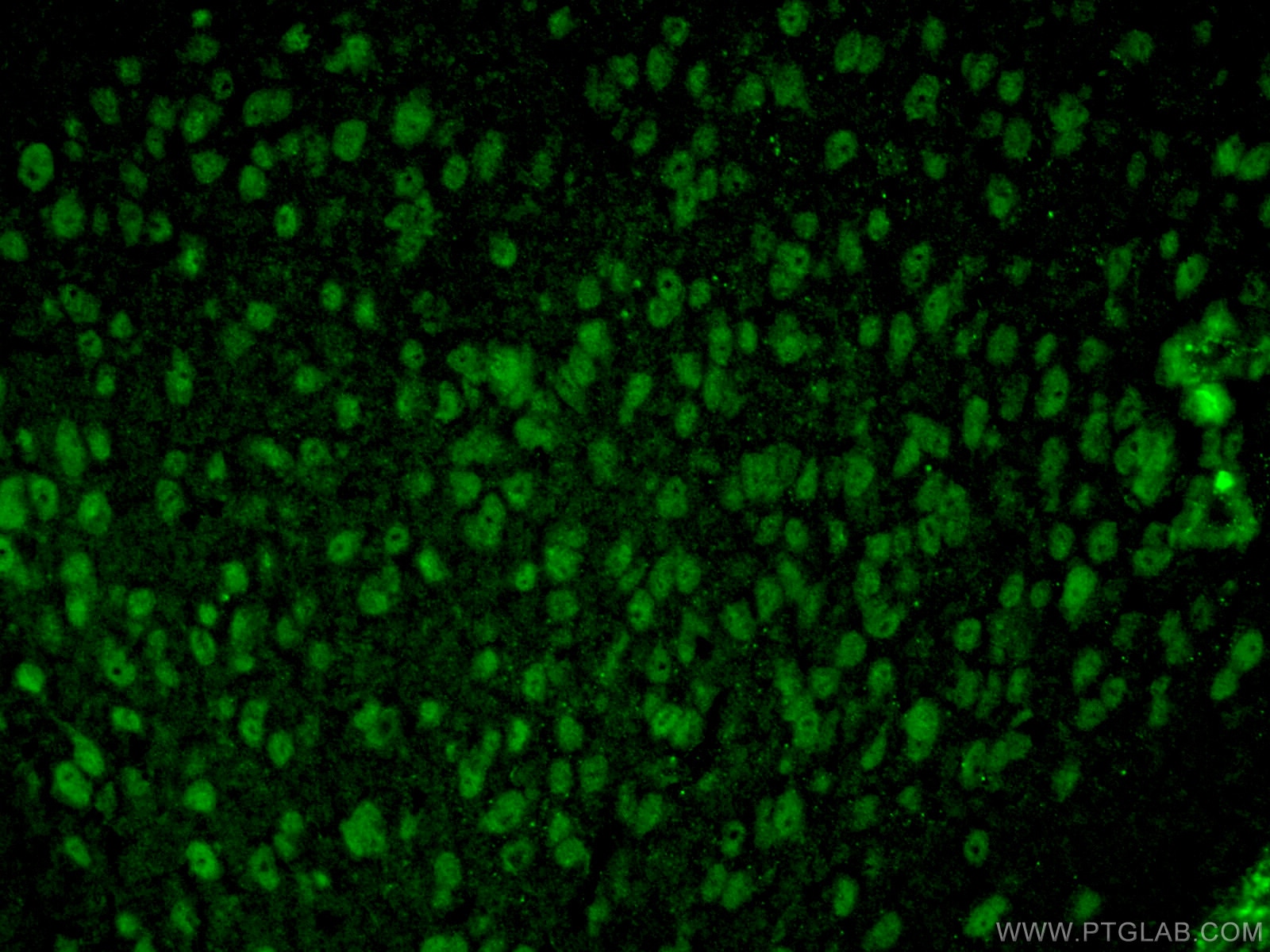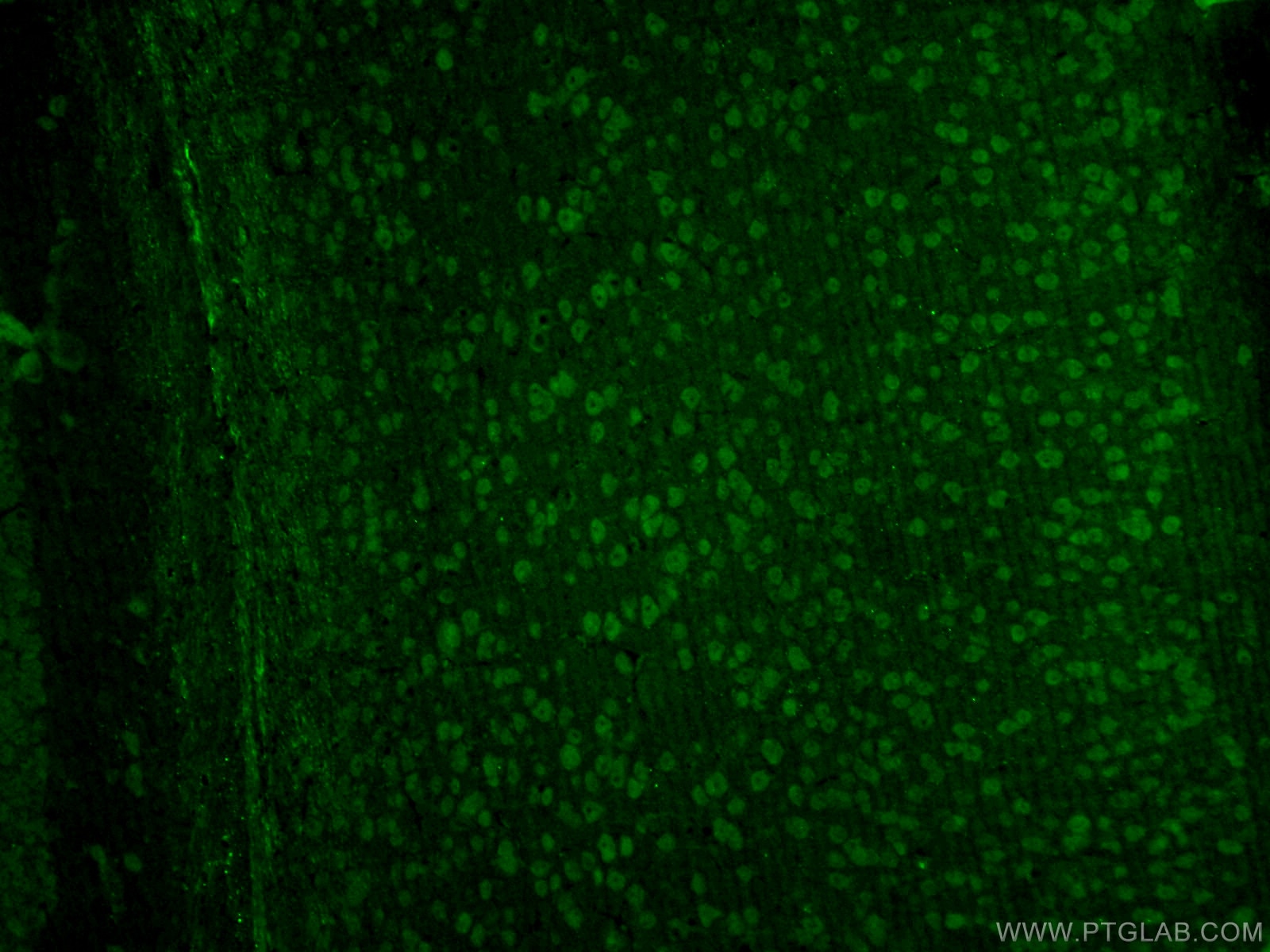Tested Applications
| Positive WB detected in | HeLa cells, mouse brain, rat brain |
| Positive IHC detected in | mouse brain tissue Note: suggested antigen retrieval with TE buffer pH 9.0; (*) Alternatively, antigen retrieval may be performed with citrate buffer pH 6.0 |
| Positive IF-P detected in | mouse brain tissue |
Recommended dilution
| Application | Dilution |
|---|---|
| Western Blot (WB) | WB : 1:1000-1:4000 |
| Immunohistochemistry (IHC) | IHC : 1:50-1:500 |
| Immunofluorescence (IF)-P | IF-P : 1:50-1:500 |
| It is recommended that this reagent should be titrated in each testing system to obtain optimal results. | |
| Sample-dependent, Check data in validation data gallery. | |
Published Applications
| KD/KO | See 9 publications below |
| WB | See 29 publications below |
| IF | See 6 publications below |
Product Information
13618-1-AP targets TTL in WB, IHC, IF-P, ELISA applications and shows reactivity with human, mouse, rat samples.
| Tested Reactivity | human, mouse, rat |
| Cited Reactivity | human, mouse, rat, canine |
| Host / Isotype | Rabbit / IgG |
| Class | Polyclonal |
| Type | Antibody |
| Immunogen |
CatNo: Ag4526 Product name: Recombinant human TTL protein Source: e coli.-derived, PGEX-4T Tag: GST Domain: 1-377 aa of BC036819 Sequence: MYTFVVRDENSSVYAEVSRLLLATGHWKRLRRDNPRFNLMLGERNRLPFGRLGHEPGLVQLVNYYRGADKLCRKASLVKLIKTSPELAESCTWFPESYVIYPTNLKTPVAPAQNGIQPPISNSRTDEREFFLASYNRKKEDGEGNVWIAKSSAGAKGEGILISSEASELLDFIDNQGQVHVIQKYLEHPLLLEPGHRKFDIRSWVLVDHQYNIYLYREGVLRTASEPYHVDNFQDKTCHLTNHCIQKEYSKNYGKYEEGNEMFFKEFNQYLTSALNITLESSILLQIKHIIRNCLLSVEPAISTKHLPYQSFQLFGFDFMVDEELKVWLIEVNGAPACAQKLYAELCQGIVDIAISSVFPPPDVEQPQTQPAAFIKL Predict reactive species |
| Full Name | tubulin tyrosine ligase |
| Calculated Molecular Weight | 377 aa, 43 kDa |
| Observed Molecular Weight | 43-45 kDa |
| GenBank Accession Number | BC036819 |
| Gene Symbol | TTL |
| Gene ID (NCBI) | 150465 |
| RRID | AB_2256858 |
| Conjugate | Unconjugated |
| Form | Liquid |
| Purification Method | Antigen affinity purification |
| UNIPROT ID | Q8NG68 |
| Storage Buffer | PBS with 0.02% sodium azide and 50% glycerol, pH 7.3. |
| Storage Conditions | Store at -20°C. Stable for one year after shipment. Aliquoting is unnecessary for -20oC storage. 20ul sizes contain 0.1% BSA. |
Background Information
Tubulin-tyrosine ligase (TTL) is the enzyme responsible for the reversible addition of a tyrosine residue at the carboxyl end of alpha-tubulin. TTL forms stable complexes with tubulin and inhibit tubulin polymerization. TTL is frequently suppressed during tumor progression with resulting accumulation of detyrosinated alpha-tubulin in tumor cells. TTL suppression in human cancers is associated with increased tumor aggressiveness.
Protocols
| Product Specific Protocols | |
|---|---|
| IF protocol for TTL antibody 13618-1-AP | Download protocol |
| IHC protocol for TTL antibody 13618-1-AP | Download protocol |
| WB protocol for TTL antibody 13618-1-AP | Download protocol |
| Standard Protocols | |
|---|---|
| Click here to view our Standard Protocols |
Publications
| Species | Application | Title |
|---|---|---|
Nat Med Suppression of detyrosinated microtubules improves cardiomyocyte function in human heart failure. |
Reviews
The reviews below have been submitted by verified Proteintech customers who received an incentive for providing their feedback.
FH WEI (Verified Customer) (05-11-2022) | Multiple bands corresponding to different isoforms.
|

